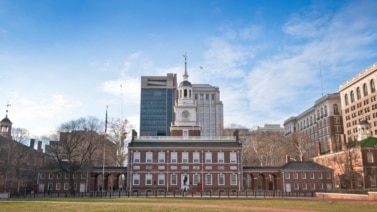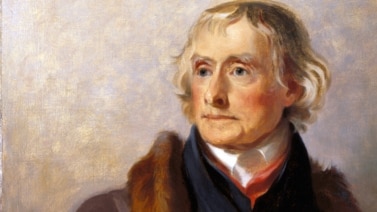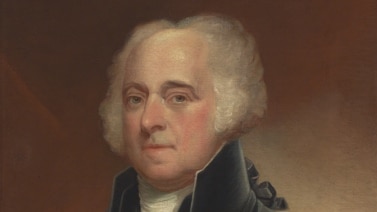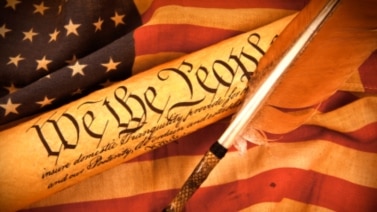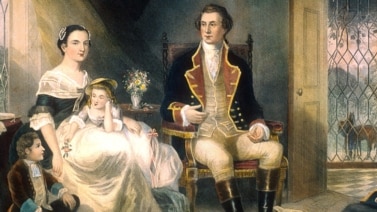
July 4, 1776, was the day early American leaders signed the Declaration of Independence and ended the colonies' political relationship with Britain.
Right?
Well … the real story is a little more complicated.
It starts a year and a half earlier, in April 1775, when American colonists began fighting with British soldiers. At the time, most colonists just wanted more independence, not complete independence.
But as the fighting continued, public opinion changed. By the summer of 1776, more and more people supported a complete break from Britain.
In June, the colonial government met in Philadelphia.
One of the representatives, Richard Henry Lee from Virginia, called for a vote on whether the colonies should declare their independence.
The other delegates were not ready to vote. But they agreed to allow five people to write a statement about why the colonies were seeking independence.
On July 2, nine of the thirteen delegates finally voted to accept Lee's proposal for independence.
A delegate from Massachusetts, John Adams, wrote to his wife that future citizens would celebrate July 2 for years to come.
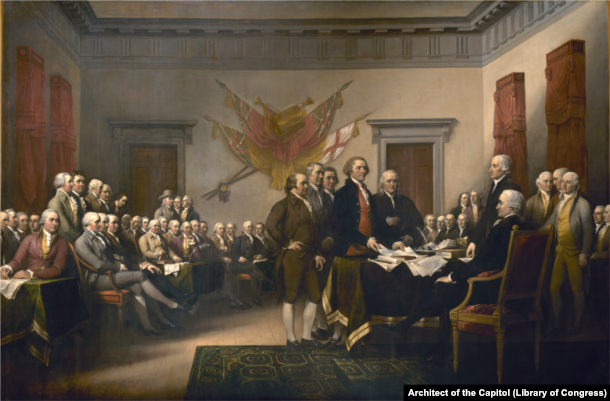
Two days later, Thomas Jefferson and the rest of the writing committee presented their Declaration of Independence. The delegates adopted it, and the president of the colonial government, John Hancock, signed it in large letters.
But most of the other delegates did not sign the Declaration of Independence until a few weeks later. Some did not sign it until the following year. And some men who signed it had not even attended the vote in Philadelphia.
Historian Ray Raphael challenges many American historical myths. Raphael says early American leaders did not discuss celebrating the anniversary of the colonies' independence until it was too late. On July 3, 1777, they agreed to honor July 4 as America's birthday.
For well over 200 years, most Americans have marked the day with patriotic and family celebrations.
I'm Jill Robbins.
Kelly Jean Kelly wrote this report for Learning English. Hai Do was the editor.
Words in This Story
adopted - v. accepted or approved
challenges - v. questions or disputes
myth - n. an idea or story that is believed by many people but that is not true
